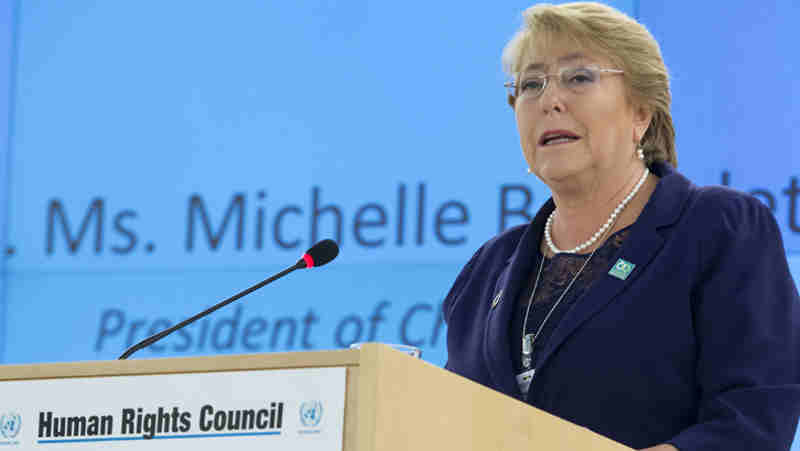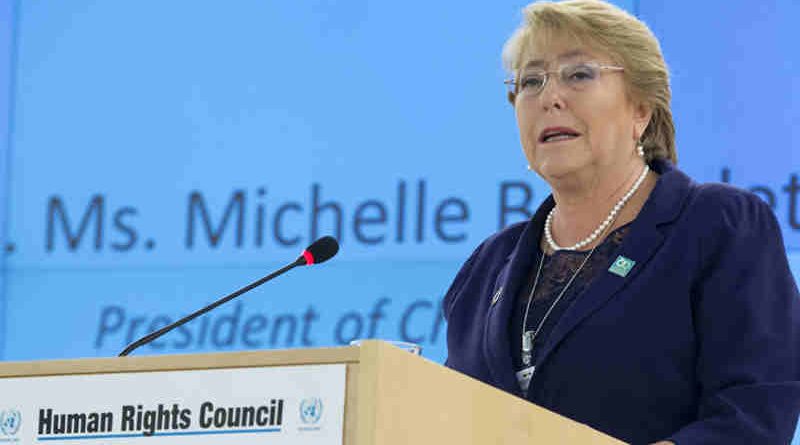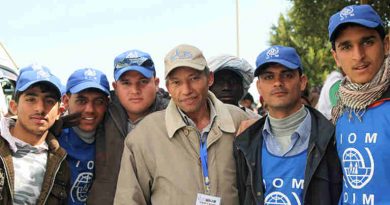Attacks on Cambodia’s Media Are Threat to Democracy: UN Report

Journalists in Cambodia are increasingly being subjected to various forms of harassment and pressure, as well as violence, a report published by the UN Human Rights Office said on August 3, amid growing restrictions on civic space and press freedoms in the country.
Sixty-five journalists were interviewed and surveyed as part of the report. All respondents to the survey stated they had faced some form of interference in the course of their work while more than 80 percent of those surveyed said they had experienced surveillance and disproportionate or unnecessary restrictions, including in relation to access to information.
For years, the authorities in Cambodia have actively adopted legislation restricting civic space generally and press freedom in particular, the report outlined. Laws and other instruments have been adopted that empower the authorities to censor and place journalists and others under surveillance and extend the government’s ability to curtail media work and freedom of expression through the courts.
The report also highlighted the specific obstacles that women media workers face, including the lack of leadership roles, harassment and gender-based violence.
|
Attacks on Journalists Today, there is no organization in the world that is working effectively to protect journalists from state excesses and police brutality. Although UNESCO and other UN agencies keep releasing loose statements and random reports about media freedom, they too have failed miserably to protect journalists in different countries. Similarly, the NGOs such as Reporters Without Borders (RSF), Amnesty International, Human Rights Watch, and various journalists’ associations – that claim to be working for press freedom and protection of journalists – mostly exist to collect huge donations and funds for their shady operations. While these so-called protectors of press freedom are not doing any tangible work to protect journalists, they operate only as secondary news outlets. They lift news from here and there about attacks on journalists and simply publish it under their own banners on their websites or issue casual condemnation statements. They cannot influence and change the brutal decisions of the authorities that are unleashing terror on journalists. ~ Rakesh Raman |
“The findings in this report are very concerning, and I urge the authorities to take on board our recommendations to ensure the media can carry out their vital work fairly and transparently for the benefit of all Cambodians,” said the UN High Commissioner for Human Rights, Michelle Bachelet.
“A free, independent and pluralistic media plays a central role in every democratic society. When we defend media freedom, we defend justice, good governance and human rights,” Ms Bachelet said.
Since January 2017, the UN Human Rights Office in Cambodia has documented cases involving 23 journalists who have faced criminal charges for disinformation, defamation or incitement as a result of their work.
Open-ended laws such as the law against the spread of Covid-19 and the 2022 Sub-Decree on the Establishment of the National Internet Gateway give the government wide-ranging powers to block information and punish unspecific crimes, and should be repealed, it added.
The report makes 15 recommendations aimed at providing a safer and more pluralistic and gender-sensitive operating space for media workers. The UN Human Rights Office says it is ready to provide the necessary support to the Government to implement these recommendations.






